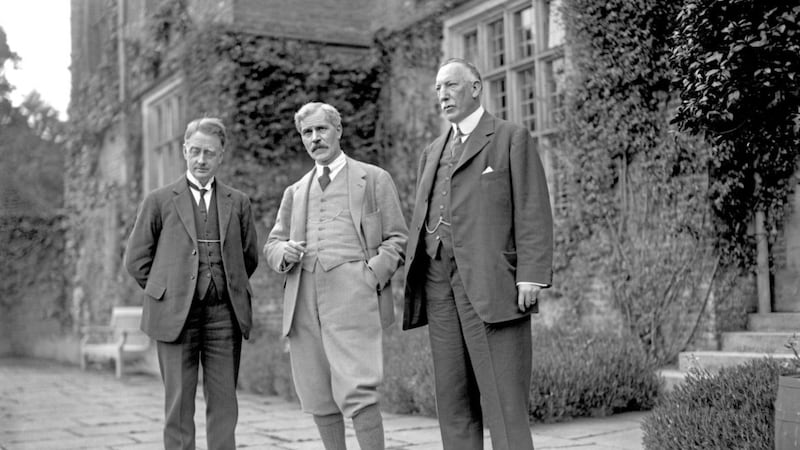The ‘fresh start’ agreement is such a total defeat for Sinn Fein that it is positively bizarre. Even as a unionist, I find it unnerving.
Northern Ireland politics may have grown beyond a zero sum game but grotesquely imbalanced outcomes are still destabilising, unsustainable and invariably followed by the pendulum swinging back.
At the heart of this year’s talks was the question of welfare reform, which boiled down to a dispute between Sinn Fein and the British government over money. The normal course of a compromise should have seen Sinn Fein getting more money while giving some ground on reform. At worst, the money might have turned out on closer inspection to be a loan.
In fact, the fresh start agreement contains less money that the Stormont House agreement, to the tune of £85m. On reform, Sinn Fein has conceded all the ground because Stormont must pay for every benefit change it does not make.
The changes themselves will be implemented not by a welfare reform bill at Stormont but by Sinn Fein and the DUP consenting to Westminster legislation. Throughout this year’s ‘crisis’, Martin McGuinness has insisted it would be “unacceptable” for devolved welfare powers to be taken back by London. Is giving them back supposed to look better?
Sinn Fein now says Stormont’s welfare reform debate was fundamentally changed by the tax credit cuts announced in chancellor George Osborne’s July budget. The fresh start agreement will offset those cuts, in addition to benefit changes, by ‘compressing’ the six-year welfare reform mitigation funding agreed at Stormont House into four years.
This might be nice for working families, at least for the next four years, but it is a responsibility Stormont had no political need to take on. Tax credits are not devolved, so nobody could have blamed the executive for their reduction. Offsetting cuts also seems remarkably hasty when Osborne is under increasing pressure at Westminster to scale his changes back. The smart thing for Stormont to do is to wait this issue out. Instead, Sinn Fein has agreed to give London £240m over four years to fund an undevolved policy that may not even happen.
It is not just on welfare reform that republicans seem to have had their eyes wiped. On dealing with paramilitarism - the only major new area of agreement required since Stormont House - Sinn Fein has ensured the new paramilitary monitoring commission does not have the power to kick it out of the executive. However, it would not have done that anyway, as the last commission proved by never using the power it had.
All the meaningful innovations on paramilitarism in the new agreement are loaded against republicans by concentrating on cross-border organised crime. There is no matching requirement for the police and other criminal justice agencies - who incidentally are the new deal’s main financial winners - to address issues associated with loyalism. Sinn Fein is required to distance itself from the army council via a humiliatingly obvious statement of principle, yet unionists must give no equivalent commitment to step away from the UDA and the UVF.
The entire Stormont House section on dealing with the past has been parked, despite Sinn Fein making this issue a very public sticking point over the past month. Of course, neither Sinn Fein nor the British government want ‘full disclosure’ on the Troubles but republicans have the advantage that any information likely to be extracted will tend to be from state rather than non-state actors. Sinn Fein failed to press that advantage home and ended up losing outright.
Even the Irish government seems to have got in on the act, giving the Shinners a kicking via a derisory £75m contribution to the A5 dual-carriageway - a £1 billion project that McGuinness recently promised to deliver.
The simplest explanation for such an uncharacteristically poor performance at Stormont is that Sinn Fein is not focused on Stormont. The party’s focus is on the south, where economic recovery means it has to moderate the anti-austerity position that caused it to block welfare reform in the first place, improved polls for Fine Gael and Fianna Fail mean it has to demonstrate it is a responsible coalition partner and an imminent election means it has to do all this in a hurry.
The real victory for unionists is that these factors have come together and forced Sinn Fein, however briefly and unwillingly, to make Northern Ireland work. No doubt defeat shall be snatched from the jaws of this soon enough.









